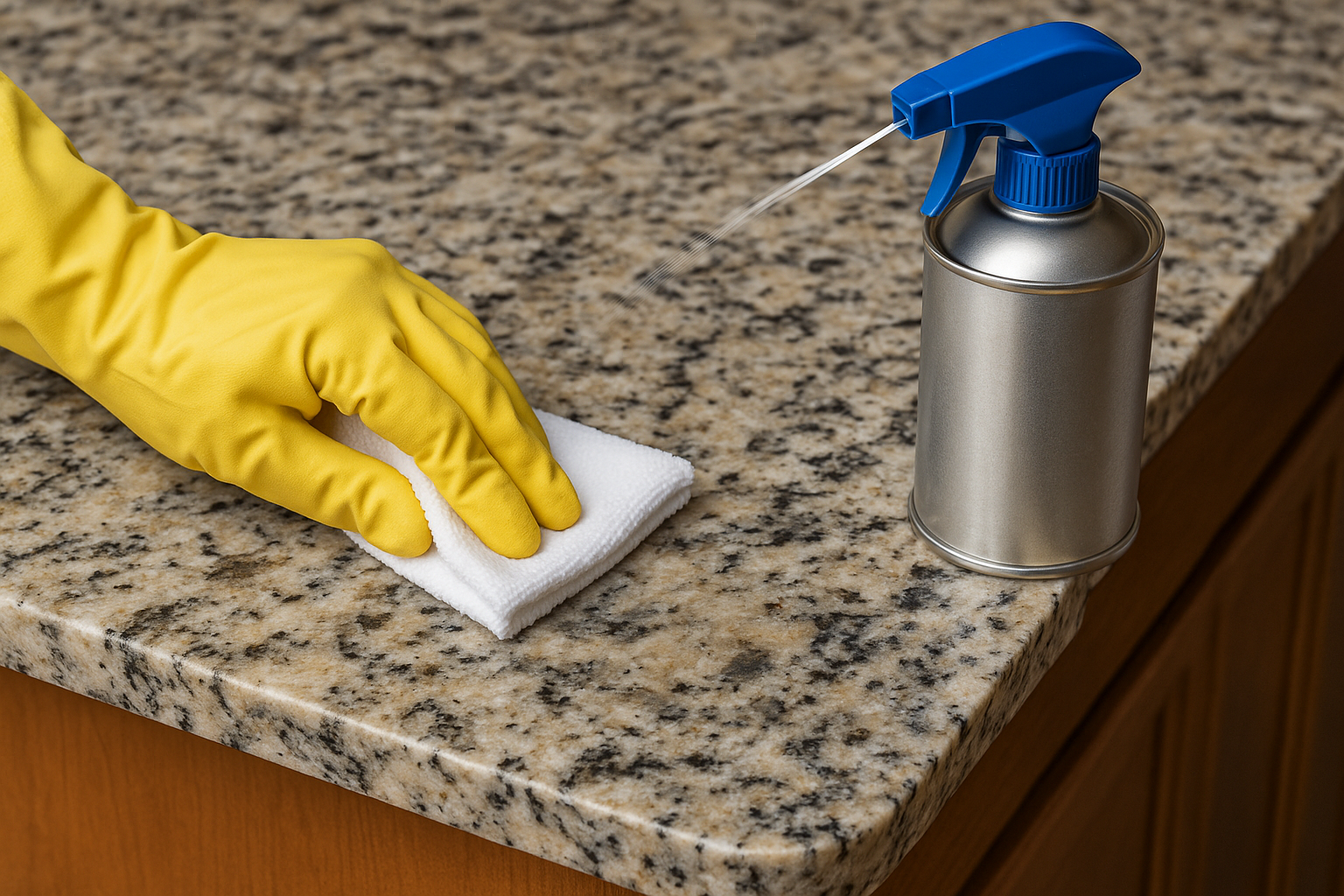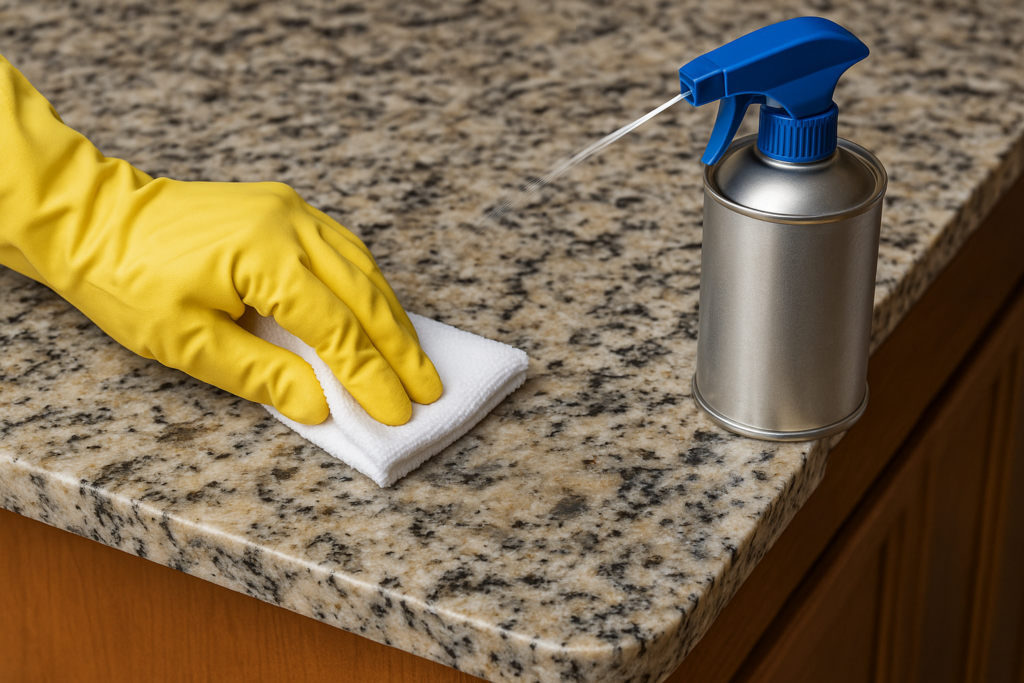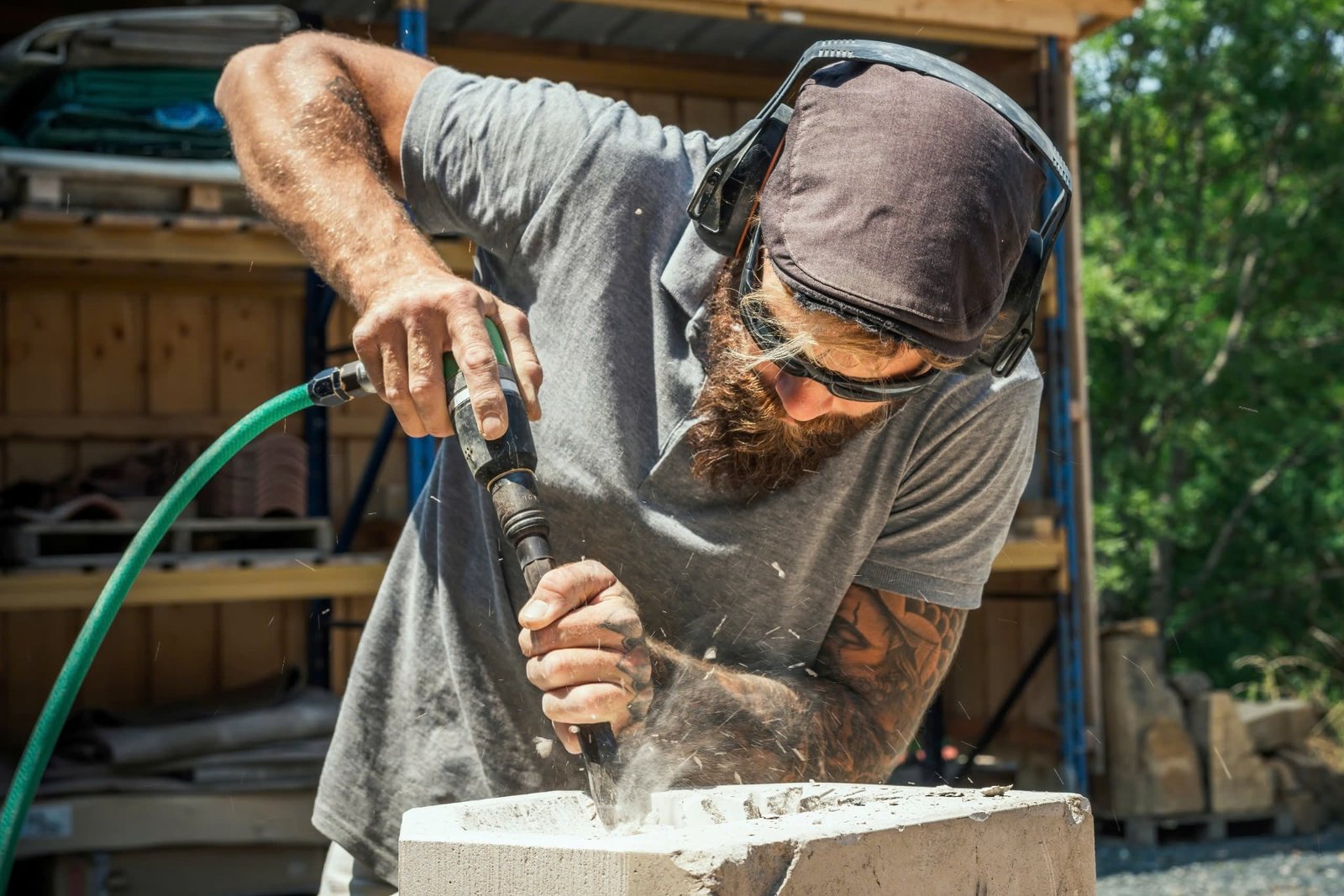
Installing a granite countertop is a significant investment in both beauty and functionality.
Installing a granite countertop is a significant investment in both beauty and functionality. However, even the most stunning granite slab can quickly lose its luster or become stained if not properly protected. That’s where sealants come in. These protective coatings preserve the natural surface, enhance the color, and protect against moisture, oils, and daily wear.
But with so many types of sealers on the market, which one is the best for your granite countertop installation?
This comprehensive guide explores the different types of granite sealants, their pros and cons, and how to choose the right product based on your countertop’s location, usage, and stone type.

Why Granite Countertops Need Sealing
Though incredibly durable, granite is a natural stone—meaning it’s porous. Without sealing, it can absorb:
- Oil and grease from cooking
- Red wine, juice, or coffee spills
- Water, which can lead to mildew
- Harsh cleaners that damage the finish
Proper sealing prevents granite countertop repair issues down the road, and also makes cleaning easier by creating a smooth, stain-resistant surface.
👉 Why Does Poor Technique Lead to Countertop Installation Damage?
Types of Granite Sealants: Which One Is Best?
There are three main types of sealants used in granite countertop maintenance:
1. Topical Sealers (Coating Sealers)
These form a protective layer on top of the granite, often creating a glossy or matte finish.
Best For:
- Low-traffic surfaces
- Budget-conscious applications
Pros:
- Easy to apply
- Enhances stone color and texture
- Inexpensive
Cons:
- Wears off quickly (reapply every 6–12 months)
- Can trap moisture underneath
- Less effective for kitchen countertops exposed to heavy use
2. Penetrating (Impregnating) Sealers
These are the most widely recommended for granite countertop installation. They absorb into the stone and repel liquids from within without changing the appearance.
Best For:
- Kitchen countertops
- Bathroom vanities
- Outdoor granite surfaces
Pros:
- Long-lasting (can last 3–5 years or longer)
- Invisible protection
- Doesn’t change natural appearance
Cons:
- Slightly higher upfront cost
- May require professional application for best results
Top Brands: Miracle Sealants 511, StoneTech BulletProof, Aqua Mix Sealer’s Choice Gold
3. Enhancing Sealers
These not only protect the stone but also deepen the natural color, often making the slab look richer and more vibrant.
Best For:
- Dark or exotic granite countertop colors
- Homeowners who want a “wet” look
- Statement countertops in show kitchens
Pros:
- Offers both protection and visual enhancement
- Suitable for indoor and outdoor granite
- Can highlight veining and texture
Cons:
- May not be ideal for light-colored granite
- More expensive than standard sealers
How to Choose the Right Sealant for Your Granite Countertop
1. Granite Color and Porosity
- Light-colored granite (e.g., white, beige) is more porous → Use high-performance penetrating sealer.
- Dark-colored granite (e.g., black, green) is denser → May need less frequent sealing or an enhancer for luster.
2. Location of Installation
- Kitchen countertops → Penetrating sealers with oil and water resistance
- Bathrooms → Moisture protection is key; ensure mildew resistance
- Outdoor granite → Use UV-resistant, weatherproof sealing solutions
3. Aesthetic Preferences
- If you love the natural matte look → Go with clear penetrating sealers
- If you want to enhance the pattern and richness → Opt for an enhancer sealer
👉 How Does a Granite Countertop Color Affect the Energy and Balance of a Kitchen Space?
How to Know If Your Granite Countertop Needs Sealing
A quick water test can tell you if your countertop needs sealing:
- Pour a few drops of water on the surface.
- Let sit for 10–15 minutes.
- If the water absorbs and darkens the granite, resealing is needed.
- If it beads up, your sealant is still active.
This test should be done once every 6–12 months, depending on usage and stone type.
Tips for Applying Granite Sealant
- Clean thoroughly with a pH-neutral cleaner before applying
- Apply sealer in a well-ventilated area
- Use a soft cloth or foam brush
- Allow proper cure time (usually 24 hours)
- Avoid acidic cleaners that strip the seal
Regular resealing is key to avoiding expensive granite countertop repair due to deep stains or etching.
Granite Countertop Design & Sealant Synergy
Sealant not only protects your stone but enhances its granite countertop design. When paired correctly, it can:
- Deepen dramatic veining
- Make colors more vivid
- Add a low-sheen or high-gloss finish
- Improve light reflection and flow in your kitchen
👉 Why Should Homeowners Choose a Granite Countertop Color Based on Their Zodiac Element?
Cost of Granite Sealants
| Sealer Type | Average Cost (Per Quart) | Application Frequency |
|---|---|---|
| Topical Coating | $15–$30 | Every 6–12 months |
| Penetrating Sealer | $25–$50 | Every 3–5 years |
| Enhancing Sealer | $35–$75 | Every 2–3 years |
Pro Tip: Investing in a high-quality penetrating sealer saves more in long-term granite countertop maintenance than opting for a cheaper coating.
Final Thoughts: Seal the Beauty, Preserve the Strength
Your granite countertop deserves long-term protection that enhances both its beauty and performance. By choosing the right type of sealant, you’ll prevent stains, minimize maintenance, and keep your surface as brilliant as the day it was installed.
Whether you prefer a natural look, bold enhancement, or simple durability—there’s a sealant that fits your needs and your lifestyle.

